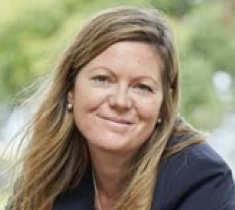
Dr Angela Dos Santo. UNSW
Australia’s first Indigenous neurologist, Dr Angela Dos Santo, is to take up a role as a clinician academic in stroke medicine at the south west Sydney hub of the University of NSW
Dr Dos Santos, a Gumbaynggirr and Kwiamble woman from Nambucca Heads in the NSW Mid North Coast has been appointed to the UNSW Scientia Fellowship Program and will work at UNSW South Western Sydney Clinical School.
She will be making the move to Sydney from Melbourne, where she has been working as a neurologist and stroke physician at the Royal Melbourne Hospital and Alfred Health, and as a senior clinical research fellow with the Australian Stroke Alliance.
Dr Dos Santos graduated medicine from Western Sydney University in 2011 and completed physician and neurology training in Sydney in 2018. She said she knew she wanted to become a stroke specialist early on in her career.
“When I was a junior doctor, I treated my first stroke patient in the emergency department. It was a young mother who had recently given birth. She was treated swiftly, and her stroke symptoms resolved within minutes of treatment. It was then I knew I wanted to be a stroke specialist.”
Professor Mark Parsons was Dr Dos Santos’ PhD supervisor at the University of Melbourne and said he’s delighted to have her join UNSW, where he is now also working.
“Angela has been trained in clinical research and clinical trials to the highest standard, and we look forward to her building upon the clinical research and trials culture at South Western Sydney.
Angela will also be a fantastic role model and mentor for our Indigenous students, as well as for Indigenous Australians in South Western Sydney and beyond.”
Dr Dos Santos said her research to date has focused on Aboriginal and Torres Strait Islander Australians, specifically their experience of stroke.
“I have written papers that examine the incidence of stroke, risk factors, treatment of stroke and outcomes. I have looked at metropolitan, regional and remote populations,” she said.
“I am privileged to be working with UNSW to support my continued and developing research goals and aspirations. This appointment allows me to evolve my research skills and with the mentoring program, I can foster a truly meaningful research career with a focus on improving the health of Aboriginal and Torres Strait Islander Australians.”